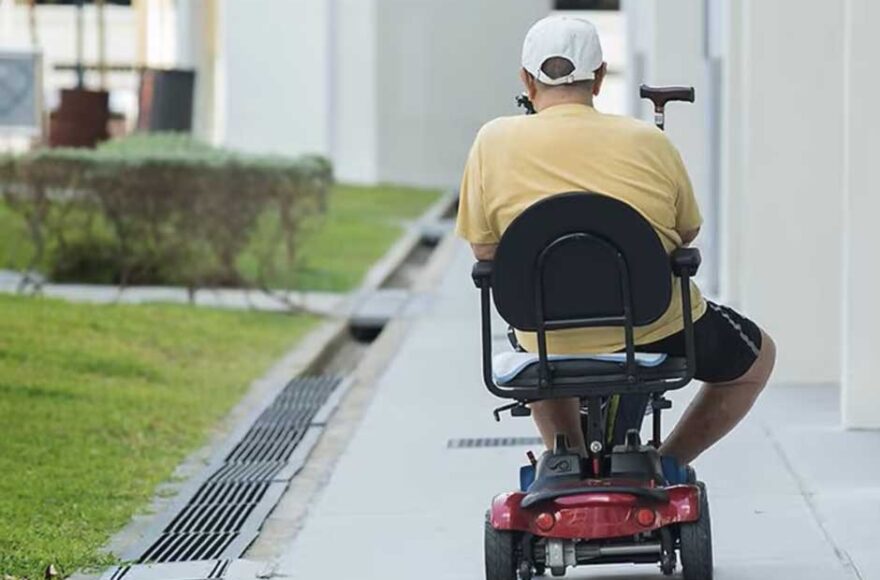Housing Stability: The Foundation of Mental Health Recovery for Veterans

Image Source: Pixabay
The transition from military service to civilian life presents unique challenges that extend far beyond finding employment or adjusting to new routines. For many veterans, the most fundamental need—secure housing—becomes a critical determinant of overall mental health and successful reintegration into civilian society. The connection between stable housing and psychological well-being is particularly pronounced among veterans, who face higher rates of homelessness and mental health challenges compared to the general population.
Understanding this relationship isn’t just about statistics; it’s about recognizing how the basic human need for shelter directly impacts every aspect of mental health recovery. When veterans lack stable housing, the stress compounds existing mental health conditions, creating a cycle that becomes increasingly difficult to break. Conversely, secure housing provides the foundation necessary for accessing healthcare, maintaining relationships, and rebuilding lives after military service.
The Mental Health Impact of Housing Instability
Housing instability affects veterans’ mental health in ways that extend far beyond the apparent discomfort of not having a permanent address. The constant uncertainty of where to sleep each night triggers chronic stress responses that can exacerbate existing conditions like PTSD, depression, and anxiety. Veterans experiencing housing instability often report feeling hypervigilant, unable to relax, and constantly planning for the next crisis.
The psychological impact becomes even more complex when considering the military background. Many veterans are accustomed to structured, secure environments that consistently meet their basic needs. The transition to civilian life, particularly when it involves housing instability, can create a jarring contrast that intensifies feelings of displacement and loss of identity. This disruption can significantly hinder the natural healing process that needs to occur after military service.
Research consistently shows that veterans experiencing homelessness have higher rates of substance abuse, severe mental illness, and suicidal ideation compared to both housed veterans and the general homeless population. The trauma of military service, combined with the ongoing trauma of housing instability, creates a perfect storm for deteriorating mental health conditions.
How Stable Housing Enables Mental Health Recovery
When veterans secure stable housing, the positive effects on mental health begin almost immediately. Having a consistent, safe place to sleep allows the nervous system to begin relaxing from the constant state of hypervigilance that characterizes homelessness. This physical safety creates the psychological space necessary for processing trauma and beginning genuine healing work.
Stable housing also provides the practical foundation for accessing mental health services. Veterans with permanent addresses can more easily maintain appointments with therapists, psychiatrists, and other healthcare providers. They can store medications safely, maintain consistent sleep schedules, and create routines that support mental health recovery. These seemingly simple aspects of daily life become powerful tools for managing symptoms and building resilience.
The dignity that comes with having one’s own space cannot be underestimated in its impact on mental health. Veterans who have served their country with honor often struggle with feelings of shame and worthlessness when experiencing homelessness. HUD-VASH housing assistance programs recognize this connection by providing not just rental assistance but also wraparound services that address the whole person, not just their housing needs.
Breaking the Cycle: From Crisis to Stability
The journey from housing instability to mental health recovery rarely follows a straight path. Many veterans experience multiple episodes of homelessness before achieving lasting stability. Understanding this pattern is crucial for both veterans and their support systems, as it helps normalize the process and reduces the shame that often accompanies setbacks.
Successful transitions typically involve multiple levels of support working together. Housing assistance provides the foundation, but mental health services, substance abuse treatment, job training, and social support all play essential roles. The most effective approaches recognize that addressing housing alone, without considering mental health needs, often leads to recurring instability.
The Role of Supportive Services
Supportive services make the difference between simply placing someone in housing and helping them maintain that housing long-term. Case management services help veterans navigate complex systems, attend appointments, and address challenges before they become crises. Mental health counseling provides the tools necessary for processing trauma and developing coping strategies.
Peer support programs, where veterans help other veterans, have shown particular effectiveness in breaking the cycle of housing instability. These programs leverage the unique understanding that comes from shared military experience, creating connections that can be more powerful than traditional therapeutic relationships.
Building Long-Term Resilience
Long-term housing stability requires more than just paying rent; it requires building the skills and support systems necessary for independent living. This includes financial literacy, social skills, and the ability to maintain relationships with landlords, neighbors, and community members. For many veterans, these civilian social skills need to be learned or relearned after years of military structure.
The development of daily routines and healthy habits becomes crucial during this phase. Veterans who have successfully transitioned often report that creating and maintaining structure in their daily lives helped them feel more secure and confident. This structure provides a sense of control and predictability that supports continued mental health recovery.
The Ripple Effects of Housing Security
When veterans achieve housing stability, the positive effects extend far beyond their individual mental health. Stable housing enables veterans to rebuild relationships with family members, often healing rifts that occurred during periods of instability. Children of veterans particularly benefit when their parent achieves housing security, as it provides the stability necessary for healthy development and family bonding.
The economic benefits of stable housing also support mental health recovery. Veterans with permanent addresses can more easily find and maintain employment, contributing to their sense of purpose and self-worth. This economic stability reduces financial stress, which is often a significant trigger for mental health symptoms.
Communities benefit as well when veterans achieve housing stability. Veterans who have successfully transitioned often become advocates and mentors for others, creating positive cycles of support and recovery. They contribute to local economies, volunteer in their communities, and bring valuable skills and perspectives gained from their military service.
Moving Forward: Hope and Healing
The path from housing instability to mental health recovery is challenging but entirely possible. Every veteran who achieves stable housing and mental health recovery demonstrates that with the right support and resources, transformation is possible. These success stories provide hope for veterans currently struggling and evidence for communities considering investments in veteran housing programs.
The key lies in recognizing that housing and mental health are inextricably linked. Programs that address both simultaneously, providing not just a roof over someone’s head but also the support necessary for healing and growth, achieve the best long-term outcomes. This holistic approach acknowledges the complexity of veteran experiences while providing concrete pathways to recovery.
For veterans currently experiencing housing instability, the message is clear: help is available, recovery is possible, and stable housing can be the foundation for rebuilding a fulfilling life. The journey may be difficult, but with persistence and the right support, lasting change is within reach.


